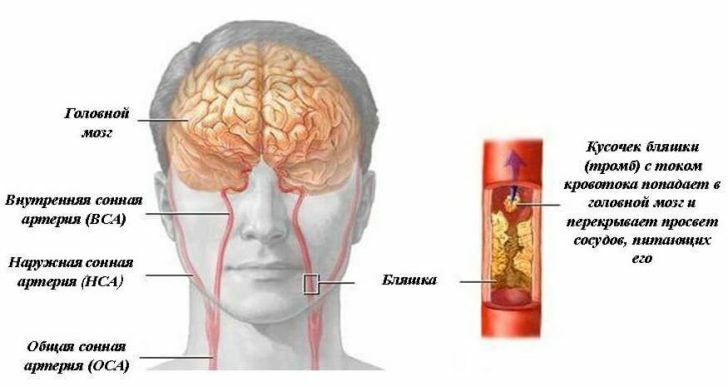Causes of dizziness and treatment

Dizziness, perhaps, is one of the most common complaints with which patients are brought to the doctors. It seemed to explain what in fact is dizziness is not necessary, because this state is excellent people know. The feeling of the movement of nearby objects or their own body, as well as the imbalance of the balance, had to be felt in some form by most people. Someone does not very well tolerate the ride in public transport, someone is reminded of carousels and swings that brought unpleasant sensations to the children's period, or discomfort at high altitude. But, despite the fact that dizziness in itself can not be considered a disease, it may well be a symptom of no less than 80 diseases, including life-threatening ones.
Why do dizziness appear?
Causes of dizziness and treatment may vary. In the case of cardiovascular disease, the patient often takes for a dizziness feeling of faintness before a fainting, impending loss of consciousness. A sense of emptiness, "lightness in the head" is often combined with blanching of the skin, nausea, palpitations, darkening in the eye area. Often patients complain, considering dizziness feeling of heaviness in the head region or sensations similar to intoxication, having a psychogenic nature and often appearing with depression and neuroses. Unsteadiness, uncertain gait happen, more often, in connection with frustration of branches of the nervous system, guaranteeing coordination in space. Deterioration of equilibrium by patients is also often considered dizziness.
Causes of dizziness of the present or systemic may be associated with a mismatch between sensitive body functions. Man eventually loses the soil under his feet in the event of defeat of the vestibular apparatus. It begins to seem to him that the ceiling and walls begin to bend, fall, then swing, or he himself starts to fall down, moving as if on unsteady soil, as in a swamp. Vomiting, nausea, combined with sweating, accompany these symptoms.
Similar vestibular dizziness( called vertego) often occurs in the form of attacks or short episodes. It is provoked, for example, by Meniere's disease. In this case, in addition to dizziness, the patient is suffering not for several hours from vomiting, nausea, zalozhennosti and noise in the ears, but also loss of hearing. Similar attacks of hearing impairment and system dizziness are also fraught with labyrinthites - complications associated with otitis and herpes zoster virus origin. Often vestibular dizziness occurs in the case of cervical osteochondrosis, in case of thyroid gland disease, as well as diabetes mellitus, in case of vegetative-vascular dystonia, hypertension or atherosclerosis.
However, most often, especially in elderly patients, dizziness occurs in the event of a sudden change in body position, with slight tilt forward and tilting the head slightly back. Over the years, the number of seizures increases, while this pathology in women is much more common. As a rule, this dizziness lasts no more than a minute and ends by itself.
Consider the diagnosis and treatment of dizziness. When considering the multiplicity of causes that cause vertigo, the doctor is at first difficult to determine the correct diagnosis. In addition, every sensation of illusory movement, in the form of instability or motion sickness, patients call dizziness. And the often occurring dizziness is dangerous due to the deterioration in the supply of brain nutrients and oxygen. For this reason, there is the possibility of the formation of a stroke, dyscirculatory encephalopathy, memory impairment and a decrease in the overall standard of living. For this reason, it is not necessary to be surprised by the meticulousness of a doctor who finds out the nature of dizziness, asks whether there have been headaches or neck injuries, and what means or glasses the patient is using. To make a final conclusion, you need an examination by both a neurologist and an ophthalmologist, and also the presence of an ultrasound and an ECG.
How to treat dizziness?
Methods of treatment, as a rule, are complex, their basis is formed by means that contribute to improving the blood circulation of the brain. However, despite such a variety of medications, doctors often have to face the fact that patients themselves prescribe nitroglycerin in case of a dizziness attack. But! Nitroglycerin promotes the expansion of coronary vessels, and those that help to supply the brain, on the contrary, narrows. Due to this, dizziness only increases.
Another obstacle to therapy is a rather late call to a doctor, which complicates the situation with additional impairments.
Physiotherapy is one of the components of repeated dizziness therapy. In the absence of a tumor in the case of a lesion of the vestibular system, the neurologist appoints thermal treatments, various types of massage, electrophoresis, manual and acupuncture.
Manual therapy has changed significantly recently in comparison with the art of bone dressing of the late 20th century. Now its basis is the principle of relaxation and muscular mobilization. Starting from the same principle, various exercises are used that are aimed at stabilizing the cerebral blood supply.
Here are some of them:
When you sit on a chair, grasp your hands behind your neck, grope with your fingers protruding in case of tilting the head more than the other seventh vertebra. Then press the neck on the resting palms and wrap the head during inspiration to the left. It is necessary to hold your breath in tension for 5-7 seconds, then on exhalation to return to the starting position and relax for 10 seconds. Then repeat the exercise 3-5 times, execute it the same number of times in another direction.
Sit on the bed, stretch your legs and press your hands to your hips, look straight. Then quickly lie on your back and return to the original position. Or, lying on your back, wrap your head in the left side.



